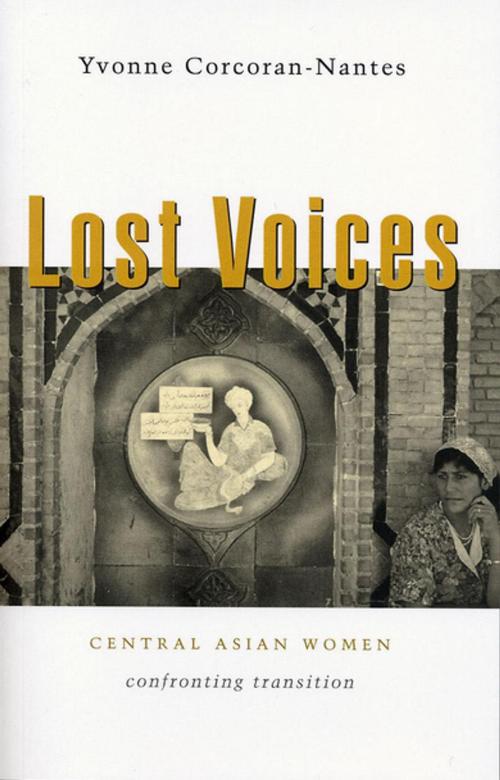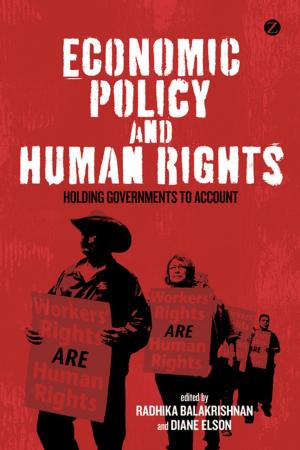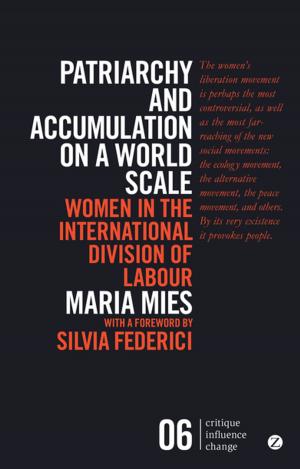Lost Voices
Central Asian Women Confronting Transition
Nonfiction, Social & Cultural Studies, Social Science, Gender Studies, Women&, Political Science| Author: | Yvonne Corcoran-Nantes | ISBN: | 9781848137295 |
| Publisher: | Zed Books | Publication: | July 4, 2013 |
| Imprint: | Zed Books | Language: | English |
| Author: | Yvonne Corcoran-Nantes |
| ISBN: | 9781848137295 |
| Publisher: | Zed Books |
| Publication: | July 4, 2013 |
| Imprint: | Zed Books |
| Language: | English |
In 1991 the collapse of the Communist Party and the dissolution of the Soviet Union launched the republics of Uzbekistan, Kyrgyzstan and Kazakhstan into an unexpected self-declared independence and a precarious, uncertain future. Emerging from almost seventy-five years of Soviet tutelage all three republics embarked on a process of radical change. Central Asian women's lives have been profoundly affected during the huge upheavals of sovietization in the 1920s and democratisation in the 1990s, but their experiences have gone unresearched and undocumented. If Central Asia was generally considered to be the forgotten world of the Soviet Union, Central Asian women constitute the 'lost voices' of Central Asia. Yvonne Corcoran-Nantes offers a timely analysis into the lives of Muslim women during the Soviet era, and considers the impact of the shift from Soviet communism to Western capitalist ideals and its impact on gender relations in the region. The uneasy synthesis between socialism and Islam under the Soviet regime offered many women considerable status and personal freedom in public life but these gains have been rapidly eroded in the process of 'democratization'. Opportunities for women have entered into serious decline in terms of employment, education and socio-political status. Unlike many commentators, she offers a convincing argument that the main threat to the socio-political status of women in Central Asia is not Islamic fundamentalism, but the imposition of free market principles and Western 'liberal democratic' ideals. Woven into the text is a also subtle and nuanced analysis of the ways in which Central Asian women negotiate feminism, whether ushered in by Soviet women during sovietization, or by western NGOs in the region today. As a special consultant to UNESCAP, the author was one of the first researchers to undertake substantial research in the republics of Kazakhstan, Kyrgyzstan and Uzbekistan in the post-independence period and this book is based on her interviews with women from the region from all sections of Central Asian society.
In 1991 the collapse of the Communist Party and the dissolution of the Soviet Union launched the republics of Uzbekistan, Kyrgyzstan and Kazakhstan into an unexpected self-declared independence and a precarious, uncertain future. Emerging from almost seventy-five years of Soviet tutelage all three republics embarked on a process of radical change. Central Asian women's lives have been profoundly affected during the huge upheavals of sovietization in the 1920s and democratisation in the 1990s, but their experiences have gone unresearched and undocumented. If Central Asia was generally considered to be the forgotten world of the Soviet Union, Central Asian women constitute the 'lost voices' of Central Asia. Yvonne Corcoran-Nantes offers a timely analysis into the lives of Muslim women during the Soviet era, and considers the impact of the shift from Soviet communism to Western capitalist ideals and its impact on gender relations in the region. The uneasy synthesis between socialism and Islam under the Soviet regime offered many women considerable status and personal freedom in public life but these gains have been rapidly eroded in the process of 'democratization'. Opportunities for women have entered into serious decline in terms of employment, education and socio-political status. Unlike many commentators, she offers a convincing argument that the main threat to the socio-political status of women in Central Asia is not Islamic fundamentalism, but the imposition of free market principles and Western 'liberal democratic' ideals. Woven into the text is a also subtle and nuanced analysis of the ways in which Central Asian women negotiate feminism, whether ushered in by Soviet women during sovietization, or by western NGOs in the region today. As a special consultant to UNESCAP, the author was one of the first researchers to undertake substantial research in the republics of Kazakhstan, Kyrgyzstan and Uzbekistan in the post-independence period and this book is based on her interviews with women from the region from all sections of Central Asian society.















